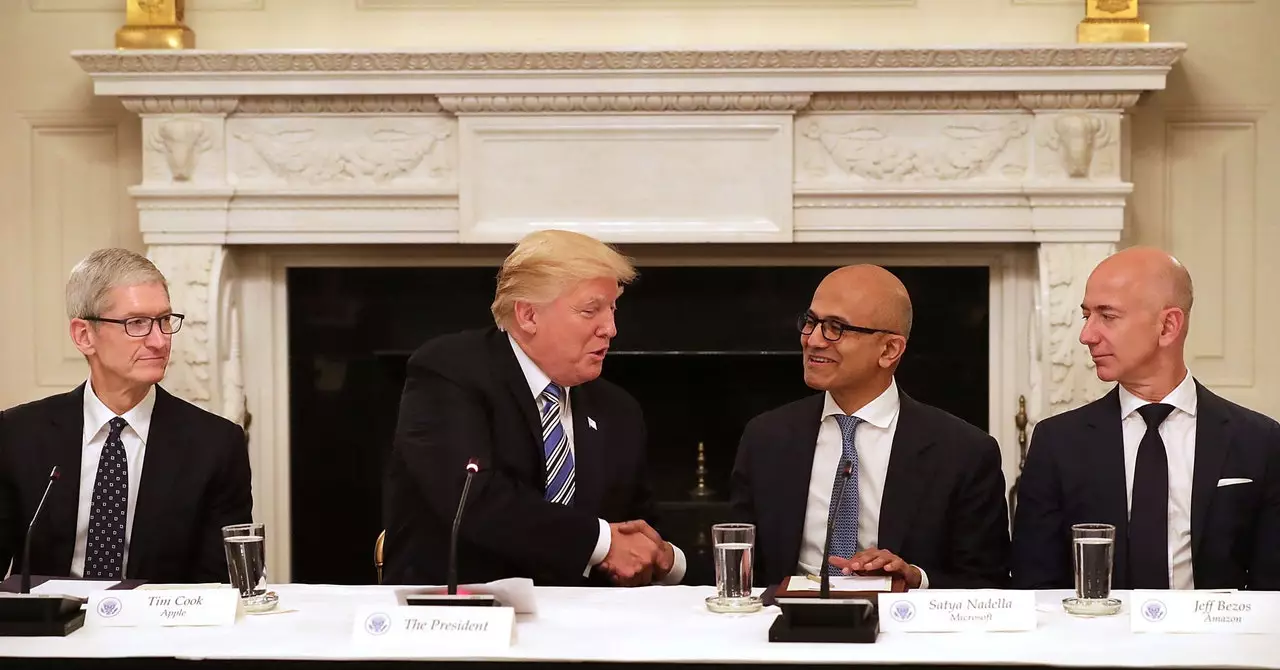As the political landscape evolves in the United States, the potential return of Donald Trump to the White House inevitably raises questions about his administration’s stance towards various sectors, particularly in the realms of cryptocurrency and big tech regulation. The fervor surrounding Trump’s declarations about firing key figures and reorganizing regulatory agencies signals his administration’s intention to tackle perceived injustices in these industries. This article will closely examine Trump’s promises regarding crypto regulations and antitrust actions against major technology companies while assessing the implications for the future of these sectors.
During a recent rally, Trump ignited enthusiastic reactions from supporters with his bold commitment to terminating Gary Gensler, the current chairman of the Securities and Exchange Commission (SEC). Gensler’s leadership has been marked by aggressive regulatory actions against crypto firms, leading many in the cryptocurrency community to regard his approach as hostile. The outcry among Trump’s base highlights a desire for a more favorable regulatory environment for digital currencies, a shift that could potentially drive innovation and investment into the sector.
Moreover, Trump’s promise to commute the life sentence of Ross Ulbricht, the architect of the infamous Silk Road marketplace, further underscores this trend. Silk Road was a pioneer in utilizing Bitcoin for transactions, albeit amid controversies surrounding its use for illegal activities. Many Bitcoin advocates view Ulbricht’s harsh sentence as an example of disproportionate punishment for crimes that reflected a moment of nascent digital commerce. Trump’s willingness to engage with this narrative not only appeals to the libertarian ethos prevalent among crypto enthusiasts but also aligns with a growing critique of excessive governmental control over emerging technologies.
The mention of Lina Khan, the current chair of the Federal Trade Commission (FTC), brings another dimension to the conversation surrounding Trump’s potential policies. Khan, known for her progressive approach to antitrust enforcement, has been central to a series of lawsuits aimed at major tech companies, including giants like Amazon and Google. Her stance has drawn mixed reactions; while progressive figures see her as a champion of fair competition, many business leaders and conservative voices have condemned her methods as overreaching and harmful to innovation.
Trump’s rhetoric indicates a possible trajectory for a new administration that could prioritize the dismantling of stringent regulatory frameworks. High-profile business leaders, including Elon Musk and LinkedIn co-founder Reid Hoffman, have openly criticized Khan, perceiving her as detrimental to the economic landscape. Analysts within financial sectors echo this sentiment, suggesting that her removal could catalyze increased merger activities and a revitalization of tech industry dynamics. Trump’s administration is poised to leverage antitrust suits not merely as regulatory tools but as bargaining chips to negotiate the behavior and content moderation practices of tech firms — a strategy that could reshape how these companies operate in the digital arena.
With Trump hinting at a nuanced approach to technology companies, it becomes pivotal to assess the balance between regulatory oversight and fostering innovation. The advocacy for antitrust action, particularly in light of perceived censorship from platforms like Google and Facebook, presents a complex challenge. As stakeholders in the tech space argue for equitable digital platforms, it remains to be seen how this advocacy aligns with broader economic goals under a potential Trump presidency.
Furthermore, Trump’s ambiguous statements regarding making Google “more fair” signify a possible attempt to reframe the conversation around big tech’s influence in politics and civil liberties. As Vance, the vice president-elect, underscores the need for antitrust solutions to combat perceived bias, the selected policies by Trump’s administration could either fortify or dismantle the gains made by progressive advocates during Khan’s tenure.
As Trump contemplates a return to power, the effects of his possible policies on the cryptocurrency space and big tech are immense. His proposals resonate with a growing desire for reform among industry players eager for less restrictive oversight. While these changes could boost innovation, they also risk undermining established norms around accountability and ethical practices in emerging industries. Thus, the impending political shifts open a dialogue about the delicate balance necessary to ensure that technology serves the public good without stifling its progress. As the election approaches, the anticipation builds regarding how these sectors will navigate the intertwined fates of regulation and innovation in an evolving digital landscape.


Leave a Reply